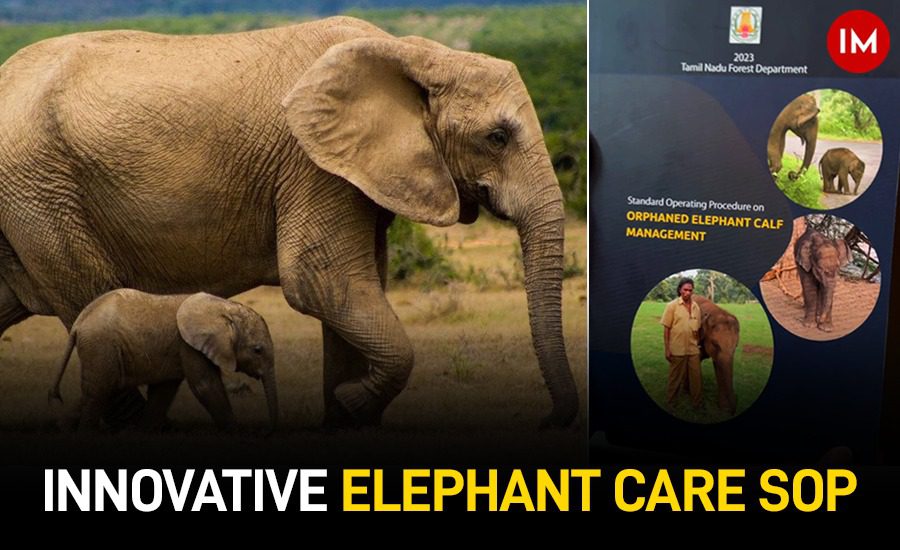In a pioneering move aimed at improving the care and rehabilitation of orphaned elephant calves, the Tamil Nadu Forest Department has unveiled a comprehensive Standard Operating Procedure (SOP) for Orphaned Elephant Calves Management. This unprecedented initiative is the first of its kind in the country.
The SOP, recently introduced by the department, is the culmination of the expertise and experience of the forest department’s staff, veterinarians, mahouts, and cavadis (assistants) from the Mudumalai Tiger Reserve (MTR) and the Annamalai Tiger Reserve (ATR). These individuals are renowned for their skilful management of orphaned elephant calves, which often results in either successful rehabilitation in the wild or expert hand-rearing in captivity.
Speaking with Indian Masterminds, IFS officer A. Udhayan, who is the Principal Chief Conservator of Forest (PCCF) and Director of the Advanced Institute for Wildlife Conservation in Vandalur, Chennai, shed light on the significance of the document. He explained that the SOP addresses crucial aspects such as identifying the age of abandoned elephant calves, minimizing stress during handling, and facilitating successful reunification with their herds. The officer has led the expert committee on this brilliant document.
ABOUT THE SOP
“The SOP was required to know how to handle calves, when to intervene, and how to intervene in a situation where the elephant calf is noticed to be stranded,” said Mr Udhayan. He emphasized that the SOP provides clear guidelines for reuniting the calves with their herds and, in cases where this proves unfeasible, offers instructions on raising the calf in captivity.
REASONS
The reasons behind calves getting stranded are varied and include scenarios such as the death of the mother elephant, getting trapped in hazardous situations, entering human habitation, rejection by mother, intermixing of herds or being too weak or diseased to keep up with the herd’s pace. The SOP has been meticulously designed to address each of these potential circumstances and provide actionable steps for the best outcomes.
To maximize the chances of successful reunification, the SOP outlines crucial steps that need to be taken promptly. Efforts are focused on relocating the calf to the appropriate herd, minimizing human imprinting on the calf to facilitate its integration back into the wild herd, and adhering to specific procedures for safely moving the calf closer to its natural habitat and family.
SUCCESS STORIES
The SOP is backed by tangible success stories from various reserves, including Mudumalai, Annamalai, and Kalakad Mudanthurai tiger reserves, where stranded elephant calves have been successfully reunited with their herds. “The document serves not only as a guide for field staff but also as a means of transferring the accumulated knowledge to those on the ground,” the officer added.
The release of the SOP for Orphaned Elephant Management marks a significant step forward in wildlife conservation and animal welfare, with Tamil Nadu’s Forest Department setting a precedent for other states and regions to follow in their efforts to protect and rehabilitate orphaned elephant calves.



































